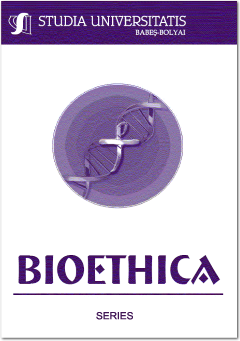WHO SHOULD PARTICIPATE IN BIOMEDICAL RESEARCH?
WHO SHOULD PARTICIPATE IN BIOMEDICAL RESEARCH?
Author(s): Maria AluaşSubject(s): Social Sciences
Published by: Studia Universitatis Babes-Bolyai
Summary/Abstract: What means Biomedical Research? Biomedical Research or experimental medicine consists of basic and applied research aimed at increasing medical knowledge and understanding [1]. It has two main domains: preclinical research and clinical research. Preclinical research aims are to generate a better understanding of diseases and new strategies for treatments. Almost all this research are carried out on animals. Clinical research aim is to assess new treatments for diseases. This research is also named clinical trial and it is carried out in a group of human participants. Because of some risks and bad consequences of this practice, questions are how to find human participants and how to motivate them to be subjects in research? Or, who should be human participants in research? When we think about Biomedical Research or Experimentation, usually we think in negative terms, like discrimination, violation of rights or ethical rules, something bad, complex and quite difficult to be well understood. And also, because of our background in this field, given by mass-media especially, to the most part of people, the first feeling is that researchers use people for knowledge, they do something bad to sick, or poor, or disabled people. Because we have many histories presented to people! But, actually, the dilemma is that even not participate in research is a bad thing. In this short essay, I will try to argue the situation of HIV patients rejected from research, in the 1980s. I was inspired by the movie Dallas Buyers Club (2013), an American biographical drama film. In this movie, we can see the history of an AIDS patient diagnosed in the mid 1980s when HIV/AIDS treatments were under-researched, while this disease was not understood and highly stigmatized.
Journal: Studia Universitatis Babes-Bolyai - Bioethica
- Issue Year: 61/2016
- Issue No: 1-2
- Page Range: 5-7
- Page Count: 3
- Language: English

